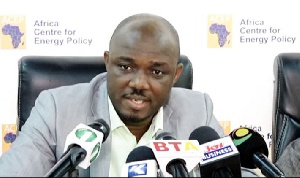The Africa Centre for Energy Policy (ACEP) has welcomed the reduction in electricity tariffs by the Public Utilities Regulatory Commission (PURC).
The PURC on Monday, 5 March 2018, announced the tariff cuts.
A statement signed by Mami Dufie Ofori, Executive Secretary to the PURC, said the review takes effect from 15 March 2018 and is expected to be reviewed again in 2019.
“The review process also took into consideration the impending Private Sector Participation (PSP) Concession within the Electricity Distribution Sector.
“The review process resulted in reductions in key utility cost. The reductions, which are based on PURC’s 2015 Gazetted Electricity Tariffs, are only on the energy charges and range from 10 % to 30 %. Maximum Demand and Service Charges remain the same as that of the 2015 gazetted tariffs,” the statement said.
It added: “Effective 15 March 2018, the electricity tariffs have been approved for customer categories, depending on their level of consumption. Residential customers, 17.4 %, Nonresidential customers, 30%; Special Load Tariffs Customers (LV,MV &HV), 25%; Mines 10%. The tariffs structure remains the same and, will be reviewed in 2019.”
ACEP in a statement signed by its Executive Director Benjamin Boakye, said: “Fundamentally, ACEP welcomes the reduction on account of three important considerations tied to the sustainability of the power sector; Rising self-generation of power. The high cost of electricity in the country has pushed many industrial consumers out of the grid.
"This survival strategy adopted by businesses does not guarantee their sustainability or encourage competition, which is important for consumers and prevent the creation of monopolies in industries; Excess supply-Ghana has move from supply shortage to oversupply of electricity. The consequence of this is that capacity charges on the surplus generation capacity will have to be paid by consumers, unless government opts to absorb the cost as the guarantor of all the power plants. The phenomenon also threatens the sustainability of the power sector as demand continues to fall below planned generation additions.
“The effect is that if demand is not encouraged,the net financial burden on the sector could cripple government’s finances and render the power unsustainable.
“The need to export power-with excess capacity, an option for Ghana is to think about the export market. However, the old tariffs priced Ghana out of competition from Nigeria and Ivory Coast who also export power in the sub-region.
“ACEP is happy to see bigger relief of 30% granted to commercial consumers. For so long commercial consumers have been subsidizing domestic consumers by paying more. The new tariffs seek to reverse that trend to give industry the impetus to create jobs, remain competitive, and by extension contribute more to government’s revenue through taxation.
“Though happy with the reduction, we demand that the PURC should publish the variables that informed the reduction to allow for transparent and independent assessment of the decision to ensure that the need for tariff reduction is carefully balanced with the interest of the utilities.
“The tariff reduction is also a call on the utilities to improve on their efficiency. This is enough signal that the PURC has rediscovered itself to ensure that inefficiencies are not automatically transferred to the consumer.”
General News of Tuesday, 6 March 2018
Source: classfmonline.com

















